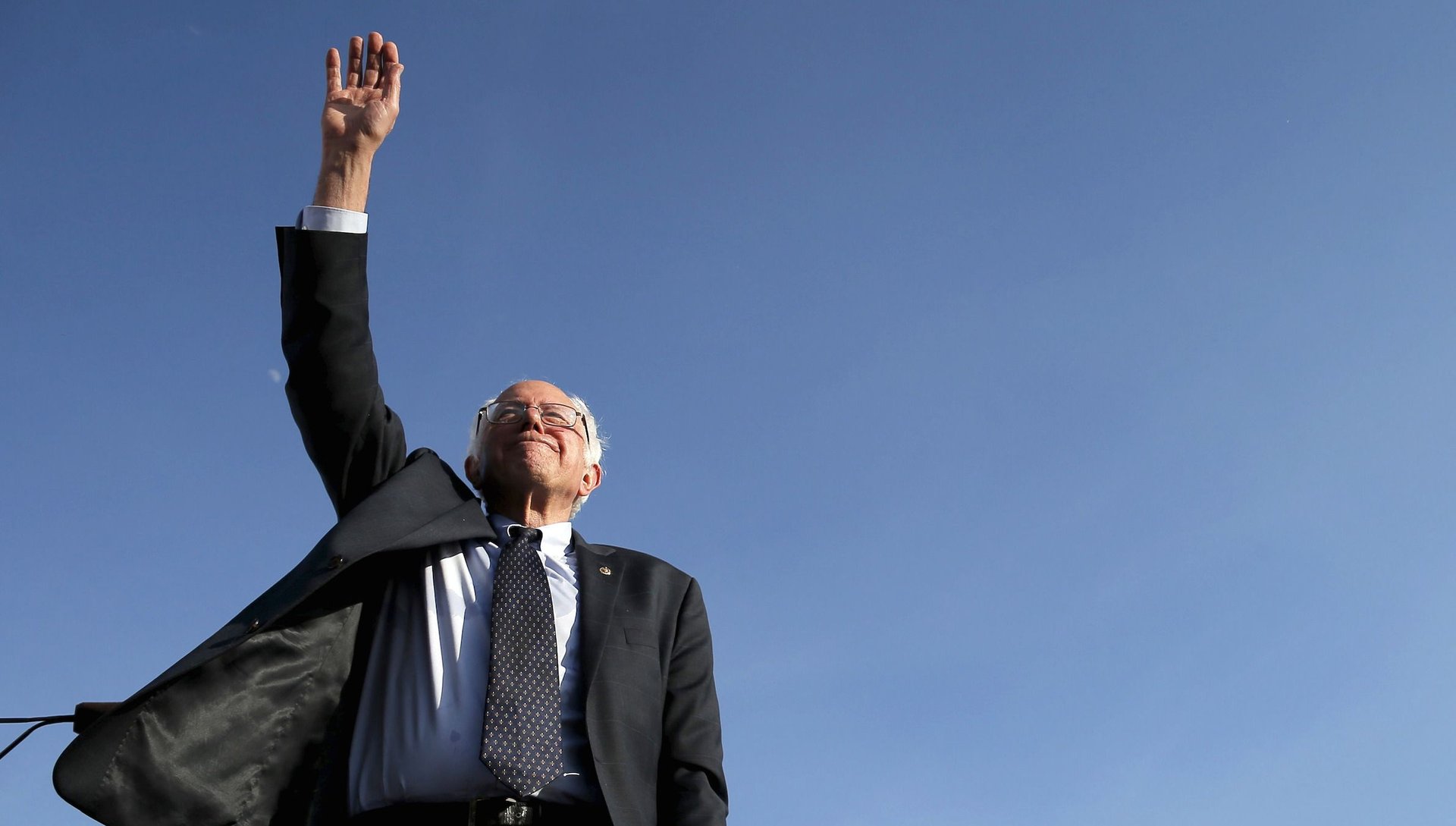Why do Americans think that Bernie Sanders is more progressive than Hillary Clinton?
Democrats would be loathe to admit it, but progressive mania for Bernie Sanders suggests sexism in their midst.


Democrats would be loathe to admit it, but progressive mania for Bernie Sanders suggests sexism in their midst.
The Vermont senator has been cast as the “progressive alternative” to former Secretary of State Hillary Clinton. Portrayed as a “a messiah on the left” and a “liberal icon,” Sanders has encouraged this perspective in his strident rhetoric. At the Jefferson-Jackson Dinner in Iowa on Oct. 24, Sanders pointedly laid claim to the progressive mantle, noting Clinton’s late arrival at liberal positions on trade, the Keystone oil pipeline and gay rights.
But, speaking as someone who’s impatient to see a woman in the White House, Sanders’ easy acquisition of the “progressive alternative” tag is disheartening and a little suspect. While Sanders does have a more left-leaning economic record than Clinton, she has a record he can’t match on gender equality.
Sanders can only unequivocally claim the role as progressive choice in the Democratic primary if voters prioritize a left-wing economic agenda over gender equality.
Sanders gets a free pass on his heterodoxy
While Sanders is unquestionably further to the left than Clinton when it comes to banking reform and foreign policy, in most areas their differences are a question of degree. Sanders supports single-payer health-care proposals, while Clinton wants to expand Obamacare; Clinton plans to make college more affordable, while Sanders wants to make it free.
But there are areas where Sanders is noticeably out of step with progressives. He has suggested that immigrants take citizens’ jobs and voted against a 2007 immigration reform bill that Clinton supported. He has also repeatedly voted against gun control laws, including mandatory waiting periods to buy a gun, and supported a bill that protects gun manufacturers from being sued when their guns are used to commit crimes. Clinton has consistently voted for gun control.
But progressive analysts and voters alike seem to give Sanders a free pass on these issues when comparing him to Clinton.
Clinton’s under-appreciated progressive credentials
Just as Sanders made economic inequality his signature issue, Clinton has long focused on gender equality, championing equal pay, making women’s rights a goal of US foreign policy, and campaigning for access to abortion and contraception.
While Sanders shares her views on gender equality, Clinton has been a leader on the issue. Plus, there is obvious symbolic power in choosing a female candidate. In 2008, casting a vote for Barack Obama was seen as a symbolic chance to oppose racism. Clinton’s candidacy marks a similar opportunity to address sexism.
That is is far from irrelevant in a country where 100% of past presidents—and 80% of US corporate directors, 88% of film protagonists and 83% of senators—are male. And for those who believe sexism is no longer an issue, there’s plenty of evidence to the contrary: The gender pay gap, the shocking underrepresentation of women in positions of leadership, and the criminal justice system that struggles to address rape and domestic violence (two crimes that affect women more than men).
Feminism is supposedly part of the progressive agenda—so much so that a Suffragette movie trailer was the first commercial aired during the recent Democratic debate. So why doesn’t Clinton generate the same level of emotional outpouring and fervent support as Obama in 2008 and Sanders today? One uncomfortable answer is that insidious sexism leaves even self-described progressives reluctant to champion Clinton and the fight for gender equality.
Let’s not pretend sexism has nothing to do with it
Progressive apathy towards the historical possibilities of a Clinton presidency reflects a tendency to downplay the impact of gender inequality. It is easier, even for progressives, to dismiss sexism precisely because this fight is often more personal, and affects more private actions, than the fight against racism. Phyllis Thompson, a lecturer in Women, Gender and Sexuality at Harvard University, explains:
The majority of people live in households with both male and female. The majority of white people live in households with other white people. It’s a rare man who can feel that they’re blameless, that they have no role in the struggle between the sexes. Most men are deeply, personally implicated. One’s own choices are on the line in a very different way than they are with racial issues.
It may be uncomfortable for leftwing Sanders supporters to realise that their candidate benefits from sexism. But it would be churlish to insist that the groundswell of mainstream support for Sanders has nothing to do with a reluctance to elect a woman.
Let’s not kid ourselves: Sexism pervades every area of US politics. Of course, Sanders supporters can be committed to gender equality and simply choose to prioritize his economic agenda. Others, however, look past that choice and simply find it easier to vote for a male nominee. But that’s not progressive. That’s patriarchy.